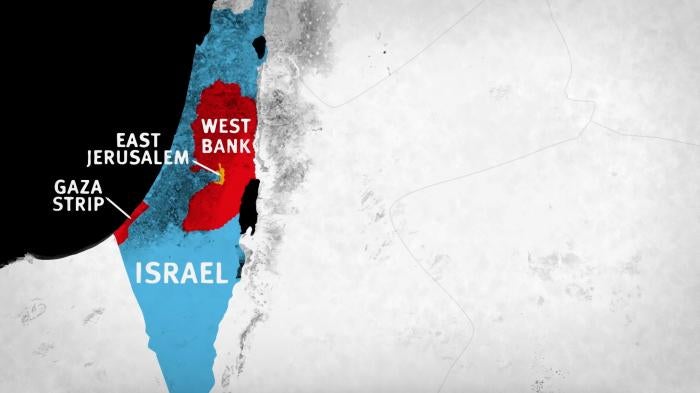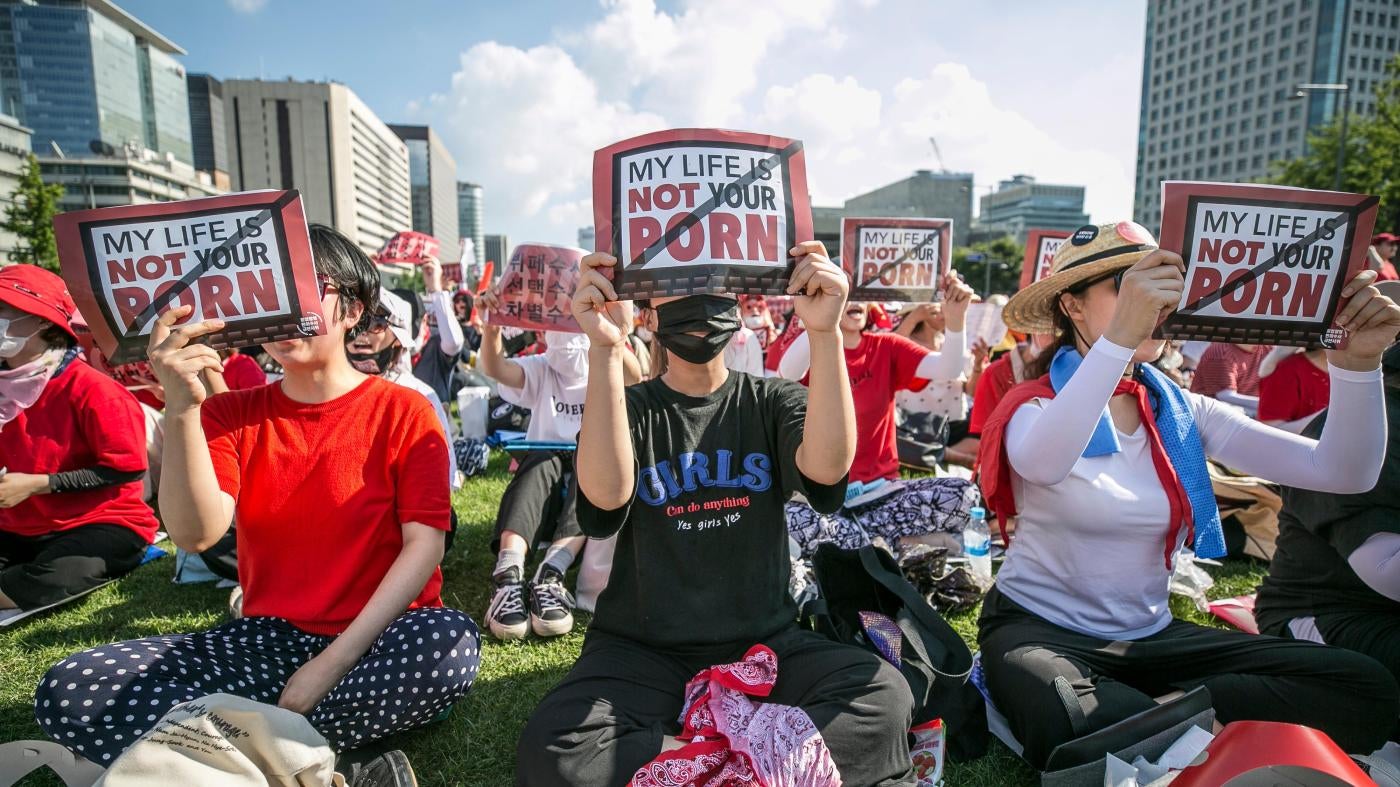10. My Life is Not Your Porn: Digital Sex Crimes in South Korea
In South Korea, the widespread posting of sexual images of women and girls on the internet without consent has a devastating impact on the victims. Despite legal reforms in South Korea, women and girls targeted in these digital sex crimes face significant difficulty in pursuing criminal cases and civil remedies, in part due to entrenched gender inequity.
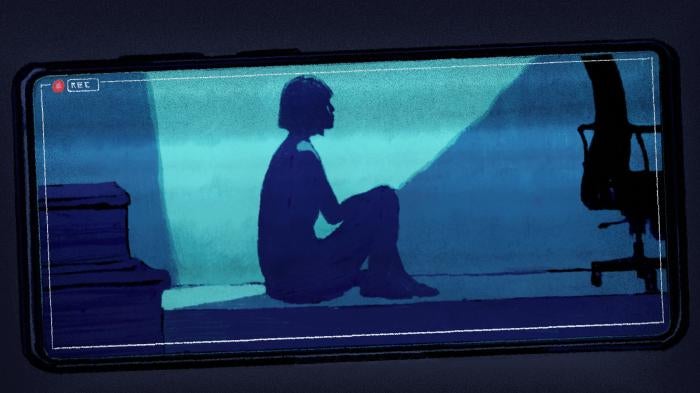
Read a text description of this video
|
Soundbites from the Survey: SOUNDBITE: SOUNDBITE: NARRATION: SOUNDBITE: NARRATION: SOUNDBITE: NARRATION: NARRATION: |
9. Taliban Kill Ex-Officials in Afghanistan
Between August 15 and November 29, Taliban forces in Afghanistan had summarily executed or forcibly disappeared more than 100 former police and intelligence officers in just four provinces.
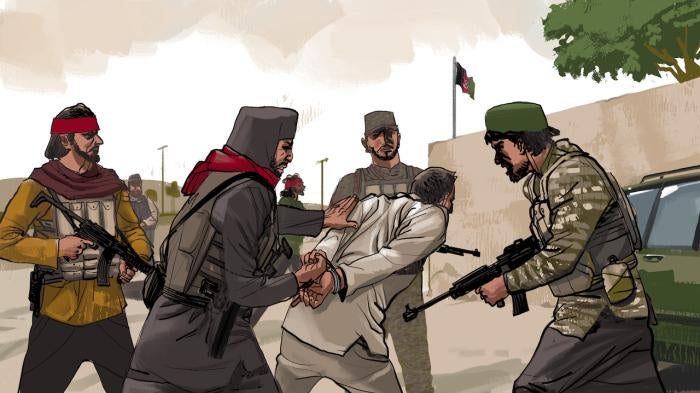
Read a text description of this video
Text on screen
People are disappearing in Afghanistan
(Direct quote from research)
“Taliban night raids are terrifying. The families can’t even ask where the person has been taken.”
Text on screen
They are being targeted by the Taliban in revenge attacks, because they were former members of the police or security forces.
(Direct quote from research)
“The Taliban took my brother… We looked everywhere. Two days later we found his body by the river. “
Text on screen
The Taliban promised an amnesty for former security force members, but these killings and forced disappearances go on.
(Direct quote from research)
“Ziaul was an NDS [intelligence agency] commander. He was arrested when he tried to leave the province. The Taliban told him ‘There is no forgiveness for people like you.’ Later, his family found his body.”
Text on screen
The international community should monitor and document these abuses and urge Taliban leaders to stop them.
8. In Cambodia, China’s Belt and Road Is a Rights Disaster
A large hydroelectric dam in Cambodia, completed in 2018 and financed by the Chinese government, severely harmed the livelihoods of thousands of Indigenous and ethnic minority people.
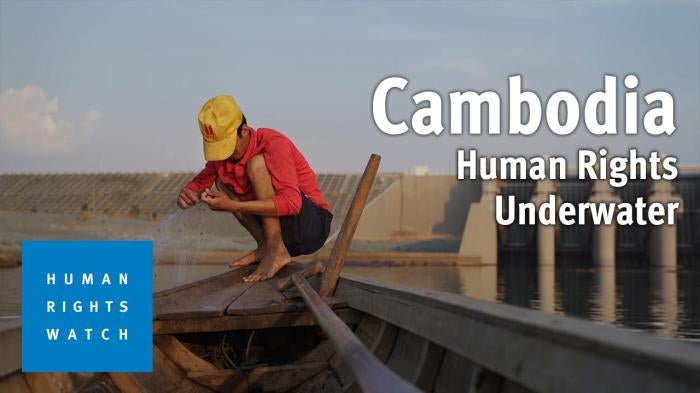
Read a text description of this video
John Sifton, Asia Advocacy Director of Human Rights Watch (onsite): So this entire area… on top of what used to be Sre Kor village. It was completely flooded after the Lower Sesan 2 Dam was completed in 2017.
Narration: The Lower Sesan 2 dam is one of the widest dams in Asia. The project is part of the Chinese government’s mammoth “Belt and Road Initiative,” an investment and infrastructure project that the government began under President Xi Jinping in 2013 to advance Chinese foreign policy interests globally.
Narration: Flooding of the dam’s reservoir inundated numerous communities and damaged the ecology of the region. In addition, about 5,000 people, mostly Indigenous or ethnic minorities lost their homes.
John Sifton, Human Rights Watch (onsite): Most of the villagers didn’t have appropriate compensation. Some who were relocated that now live in an area quite far from here and pretty disappointed what happened to their village.
Narration: Much of the damage and devastation the dam would bring was known before it was built, and locals voiced their concerns even then.
Community video statements:
Woman: We were worried about relocating and moving our homes, cows, water buffalos, pigs, and chickens.
Man: We are also worried about our rice fields, crops, the hospital, school and the Srepok river.
Man: I am very worried about this situation. I am deeply troubled about losing my fields and land.
Woman: We do not want to move away because we have well-made valuable houses. We have coconut trees, mango trees, and everything. If we live at a new place, we won’t have coconuts and mangos to sell anymore.
Narration: Many of those displaced were moved to areas that lacked clean water and the soil was not well-suited for farming. They received inadequate compensation for the loss of their homes or income. Tens of thousands whose livelihoods depended on fishing on the rivers around the dam, suffered enormous losses in income.
Thong Sa Morn: For my family living in this new village, we don’t really make money. In the old village, I was a farmer. Sometimes I would fish, in addition to working on the farm. You know that in the old village my house was right next to the river and my work is next to the river.
Narration: The dam has decimated the fish population in a country where fish makes up 60 to 75 % of the protein of the Cambodian diet.
John Sifton onsite: So we’re in a village on the Sre Kor river. Some villagers said they used to catch up to 40 kilos of fish a night. Now they sometimes struggle to get 10klmoften less than that. The fish are also smaller and fetch less money. Sometimes only a dollar a kilo and they’re struggling to survive.
Narration: The companies involved in the Lower Sesan 2 project, as well as the Cambodian and Chinese governments that authorized the project, should review the project’s impact urgently and allocate significant new resources to remedy the harms they have caused.
Narration: As the Chinese government finances other Belt and Road projects, whether in Cambodia or elsewhere, government and company officials need to take far greater steps to protect the human rights of affected communities and compensate them when they’re harmed.
7. Refugees Returning to Syria Face Grave Abuses
Syrian refugees who returned to Syria between 2017 and 2021 from Lebanon and Jordan faced grave human rights abuses and persecution at the hands of the Syrian government and affiliated militias.
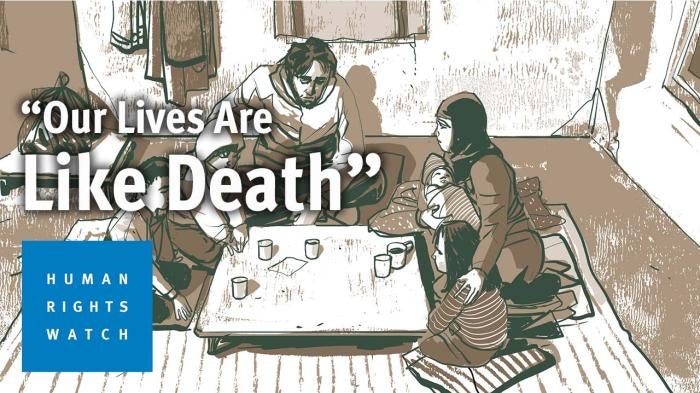
6. Myanmar Forces Targeted Protesters in March Massacre
Following the February 1 military coup against Myanmar’s democratically elected government, Myanmar security forces deliberately encircled and used lethal force during the March 14 anti-junta protests in Yangon’s Hlaing Tharyar township.
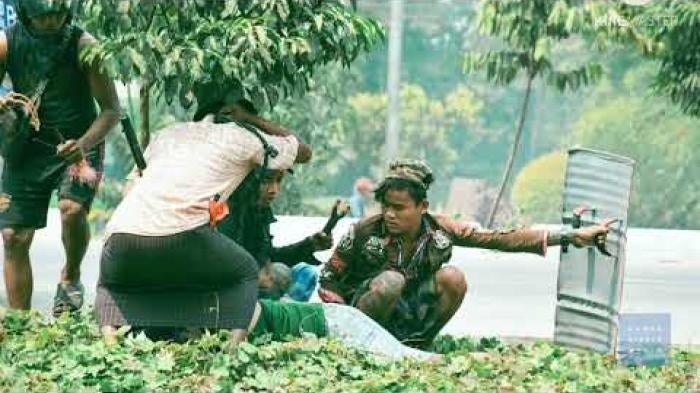
5. HRW Executive Director Kenneth Roth on US Policy
Executive Director Kenneth Roth speaks of Joe Biden’s election as a catalyst for change and asks Biden to cement human rights in US policy.
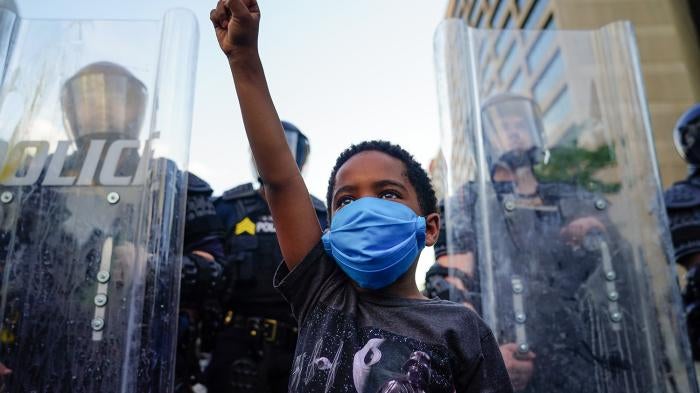
Read a text description of this video
Executive Director of Human Rights Watch, Kenneth Roth
For four years, US President Donald Trump showed indifference and often hostility to human rights. He flouted human rights at home and embraced friendly autocrats abroad, severely eroding US credibility. Condemnations of Venezuela, Cuba or Iran rang hollow when Trump bestowed parallel praise on Russia, Egypt, Saudi Arabia or Israel.
Joe Biden’s election provides an opportunity for fundamental change, but his election is not a panacea. In recent decades, the wild oscillations in US human rights policy as administrations change hands has left many governments wondering if they can depend on the United States.
Fortunately, as Trump largely abandoned human rights, other governments recognized that human rights are too important to ignore.
Several Latin American countries plus Canada spearheaded the defense of human rights in Venezuela. The Organization of Islamic Cooperation played a central role in defending the rights of Rohingya Muslims facing persecution in Myanmar. Germany, France, and Turkey forced Russia and Syria to stop targeting civilians in Syria’s Idlib province. With China, a growing coalition of governments overcame their longstanding fear of retaliation to condemn Beijing’s worsening repression of Uyghur Muslims in Xinjiang.
The growing number of nations involved in this defense of human rights made it more robust, even without the United States.
Biden’s challenge is not simply to reverse Trump’s damage to rights, but also to change the narrative on human rights in a more fundamental way, so it can better survive future changes of administration. That requires reshaping the public’s understanding of the importance of human rights.
Within the United States, Biden will need to speak more regularly in terms of rights. For example, in seeking to bolster access to health care, he should talk of the right of everyone to see a doctor without bankrupting their family.
On US foreign policy, Biden should affirm that promoting rights is a core principle, and then abide by it, even when politically difficult.
Absent major improvements, he should curb military aid or arms sales to abusive governments such as Saudi Arabia, Egypt, the United Arab Emirates, and Israel. He should be more outspoken about Indian Prime Minister Modi’s encouragement of discrimination and violence against Muslims, even if India is an important ally against China.
He should re-embrace the UN Human Rights Council. He should void Trump’s sanctions on the International Criminal Court even if he doesn’t like the prosecutor’s investigations.
On China, Biden should abandon Trump’s inconsistent, transactional unilateralism, which discouraged others from joining him. Biden should substitute a more principled, consistent, and multilateral approach.
Turning the clock back four years will not be enough to undo Trump‘s damage. The world has changed, and so must the defense of human rights.
Now that many nations have recognized the value of assuming leadership roles on rights, Biden should seek to join that enhanced defense of rights, not supplant it, and to steer US foreign policy in a more principled, pro-rights direction. Whether the US government can become a reliable defender of human rights depends on Biden’s success.
4. Brazilian President Bolsonaro Blocks Critics on Social Media
This Portuguese-language video was our fourth-most-watched video of 2021: President Jair Bolsonaro of Brazil is blocking social media followers who criticize him, violating their rights to free speech and access to information, and to participate in the conduct of public affairs. (Here is the English version)

3. HRW Investigates Israeli Strikes on Gaza
Israeli forces and Palestinian armed groups carried out attacks during the May 2021 fighting in the Gaza Strip and Israel that violated the laws of war and apparently amount to war crimes.
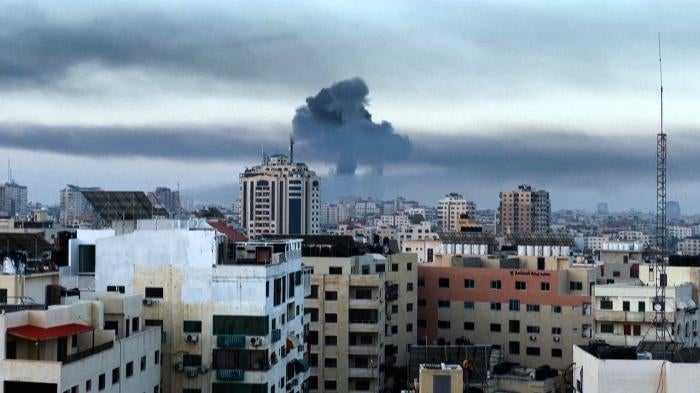
Read a text description of this video
Voice Over
On May 10, 2021, eleven days of hostilities began between the Israeli military and Palestinian armed groups, including Hamas, in the Gaza Strip and Israel.
The fighting took place amid escalating repression in occupied East Jerusalem and the prolonged closure of the Gaza Strip. These policies and practices reflect the Israeli government’s crimes against humanity of apartheid and persecution.
Human Rights Watch conducted in-depth investigations into three Israeli strikes that killed 62 Palestinian civilians and involved serious violations of the laws of war and apparent war crimes.
In the northeastern corner of the Gaza Strip outside Beit Hanoun town shortly after 6 p.m. on May 10, a guided missile struck near four houses belonging to the extended al-Masri family.
Members of the family were packing processed barley for animal feed into sacks at the time.
Youssef Atallah al-Masri (Witness)
My brother Ibrahim and I were around 150-200 meters away when they struck our children.
We were facing the events, we saw it with our own eyes when they were hit. I ran to them right away. I found our children scattered. They were scattered on the floor ripped to pieces, blood and brain fragments.
Voice Over
Israeli authorities have said that the attack involved a misfired Palestinian rocket coming from the west, but have produced no evidence to back up this claim.
Witnesses saw a munition approaching them from the east, from Israel.
Based on munition remnants found at the scene of the attack and witnesses' descriptions, we determined that the 6 children and 2 adults were most likely killed by a type of guided missile used to attack military vehicles or personnel in the open.
Six days after the attack, the Israeli authorities also included the photo of one man killed in the Beit Hanoun attack on a list of militant group “activists” they said had been killed in unspecified locations.
Human Rights Watch’s interviews with witnesses who knew him indicate the man was a civilian.
Our research uncovered no evidence of a military target at or near the site. We therefore found the attack to be unlawful.
Mohammad Attalah al-Masri (Witness)
It was a scene I could never expect. Everyone cries and screams every day. Do you know what my wife wants? She wants me to sell the house. She cannot accept how her children were all killed.
Voice Over
Al-Shati refugee camp, located northwest of Gaza City, is one of the most densely
populated places in the world.
At about 1:40 a.m. on May 15, an Israeli airstrike destroyed a three-story building in the camp killing two women and eight of their children.
Alaa Abu Hattab (Witness)
I lived with my wife and 5 children in the house. Our home was filled with love, peace and happiness. We had been living here for 30 years. There was no prior notice, no phone call, no order to vacate. That night I went to buy bread for dinner. All of a sudden there were sounds of explosions in the area. I found that my own home had been struck.
Voice Over
The Israeli military said it struck the building because senior Hamas officials were there. It also separately said that they had targeted a bunker under or near the building.
None of the witnesses Human Rights Watch interviewed were aware of any militants or other military targets in or near the building. The Israeli authorities have presented no such evidence.
Alaa Abu Hattab (Witness)
I had a reality, I had a dream here. I had a family here. Now I have no family and no home. My only daughter and I are on the street. They destroyed everything in my life. They destroyed my life entirely.
Voice Over
At about 1 a.m. on May 16, the Israeli military launched a four-minute attack in the heart of Gaza City along five streets, including al-Wahda Street, causing three multi-story residential buildings to collapse.
Omar ABu El-Ouf (Survivor)
Me, my father and mother, and my brother and sister, we started hearing the sound of loud explosions. After the second missile landed, the house started to sway right and left as if it were about to fall down and collapse. I pulled my sister by the arm towards the hallway and held her in order to shield her, and suddenly, we saw the third missile coming from the window and the hallway’s entire wall collapsed, and the whole floor suddenly disappeared, and everything fell on us. And afterwards, the fourth missile came down on us. And destroyed everything.
Voice Over
Human Rights Watch determined that the three buildings collapsed after missiles struck the road or sidewalk next to the buildings. The Israeli military said that they targeted tunnels used by armed groups. Later, they said the attack had targeted an underground command center, but without providing any details or evidence.
Omar ABu El-Ouf (Survivor)
Why did they kill my family? Why did they kill my father and mother? Why did they turn me into an orphan? Who will in the end give me justice?
Voice Over
The attacks killed 44 civilians, including 14 women, 12 men and 18 children. It also injured about 50 others.
The Israeli military used powerful weapons in a heavily populated residential area putting the lives of scores of civilians at risk. Since then, they have produced no evidence of a military target in the vicinity to justify the attack. If there was a military target, they have also not shown that it was important enough to justify the risk to civilians. As a result, these attacks were unlawful.
The UN says that Israeli airstrikes in May killed at least 129 civilians, including 66 children.
The Israeli military said that Palestinian armed groups in Gaza fired more than 4,360 rockets and mortars towards Israel between May 10 and 21, resulting in 12 civilian deaths, including 2 children.
Several Palestinians also died in Gaza when rockets fired by armed groups fell short and landed in Gaza. Rockets that Palestinian armed groups fire at Israel are inherently indiscriminate when directed toward areas with civilians. Their use in such circumstances violates the laws of war and amounts to war crimes.
For years, Israeli and Palestinian authorities have systematically failed to credibly investigate alleged war crimes.
The International Criminal Court prosecutor should investigate Israeli attacks in Gaza that evidently killed civilians unlawfully, rocket attacks by Palestinian armed groups against Israel that violate the laws of war, and other grave abuses including the crimes against humanity of apartheid and persecution.
2. Afghans at Risk from Taliban Need Protection
This August 16th video shows how chaos reigned in Kabul as Taliban grabbed power in Afghanistan
And the most-watched video of 2021:
Israeli authorities are committing the crimes against humanity of apartheid and persecution, Human Rights Watch said in a report released April 27, 2021.
